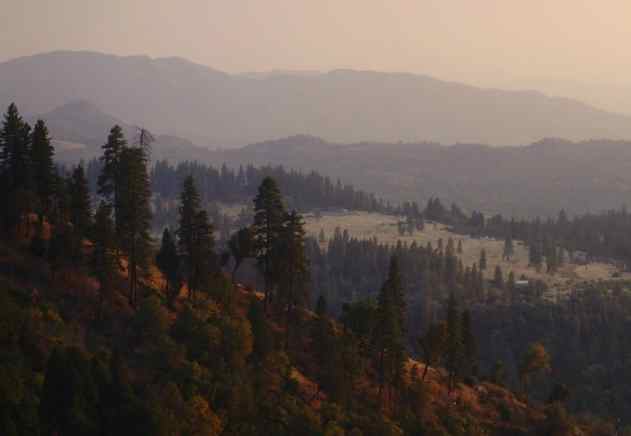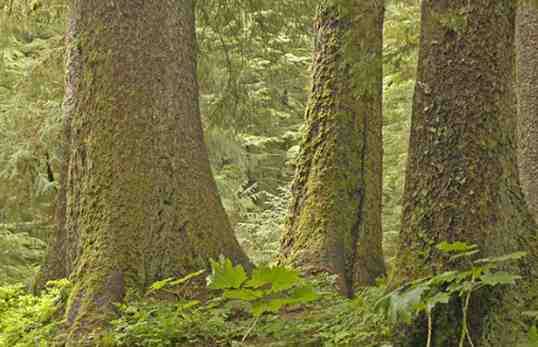Agriculture Secretary Tom Vilsack today announced the U.S. Department of Agriculture’s final Planning Rule for America’s 193-million acre National Forest System that includes stronger protections for forests, water, and wildlife while supporting the economic vitality of rural communities.
This final rule – which follows USDA’s Feb. 3 publication of the Programmatic Environmental Impact Statement – replaces the 1982 rule procedures currently in use, and provides a new framework to be used for all individual management plans for 155 national forests and grasslands across the country. Over half of Forest Service units are currently operating with plans that are more than 15 years old.
“This new rule provides the framework we need to restore and manage our forests and watersheds while getting work done on the ground and providing jobs,” said Vilsack. “The collaboration that drove this rulemaking effort exemplifies the America’s Great Outdoors initiative to foster conservation that is designed by and accomplished in partnership with the American people.”
The USDA and the Forest Service carefully considered over a quarter million comments received on the proposed rule and draft environmental impact statement issued in February to develop today’s final rule, which emphasizes collaboration, sound science and protections for land, water and wildlife.
The final rule strengthens the role of public involvement and dialogue throughout the planning process. It also requires the use of the best available scientific information to inform decisions.
“We are ready to start a new era of planning that takes less time, costs less money, and provides stronger protections for our lands and water”, said U.S. Forest Service Chief Tom Tidwell. “This new rule will bring 21st century thinking to a process that is sorely needed to protect and preserve our 193 million acres of amazing forests and grasslands.”
Land management plans under the final rule will include:
- Mandatory components to restore and maintain forests and grasslands.
- Requirements to provide habitat for plant and animal diversity and species conservation. The requirements are intended to keep common native species common, contribute to the recovery of threatened and endangered species, conserve proposed and candidate species, and protect species of conservation concern.
- Requirements to maintain or restore watersheds, water resources, water quality including clean drinking water, and the ecological integrity of riparian areas.
- Requirements for multiple uses, including outdoor recreation, range, timber, watershed, wildlife and fish.
- Requirements to provide opportunities for sustainable recreation, and to take into account opportunities to connect people with nature.
- Opportunities for public involvement and collaboration throughout all stages of the planning process. The final rule provides opportunities for Tribal consultation and coordination with state and local governments and other federal agencies, and includes requirements for outreach to traditionally underrepresented communities.
- Requirements for the use of the best available scientific information to inform the planning process and documentation of how science was used in the plan.
- A more efficient and adaptive process for land management planning, allowing the Forest Service to respond to changing conditions.
Continuing the strong emphasis that has been placed on public engagement throughout this rule-making effort, USDA is forming a Federal Advisory Committee to advise the Secretary and the Chief on implementation of the final rule. The nomination period closed on February 21, 2012 with committee members to be announced this spring.
The Nez Perce and Clearwater National Forests in Idaho, the Chugach National Forest in Alaska, the Cibola National Forest in New Mexico, El Yunque National Forest in Puerto Rico and California’s Inyo, Sequoia and Sierra National Forests will begin revising their plans using the final rule this spring. These eight national forests were selected because of their urgent need for plan revisions, the importance of the benefits they provide, and the strong collaborative networks already in place.
The mission of the U.S. Forest Service is to sustain the health, diversity, and productivity of the nation’s forests and grasslands to meet the needs of present and future generations. The agency manages 193 million acres of public land, provides assistance to state and private landowners, and maintains the largest forestry research organization in the world.
USDA works with state, local and Tribal governments and private landowners to conserve and protect our nation’s natural resources – helping preserve our land, and clean our air and water. President Obama launched the America’s Great Outdoors initiative in 2010 to foster a 21st century approach to conservation that is designed by and accomplished in partnership with the American people. During the past two years, USDA’s conservation agencies— the U.S. Forest Service, the Natural Resources Conservation Service, and the Farm Service Agency—have delivered technical assistance and implemented restoration practices on public and private lands. We are working to better target conservation investments: embracing locally driven conservation and entering partnerships that focus on large, landscape-scale conservation.







